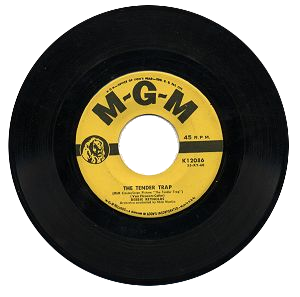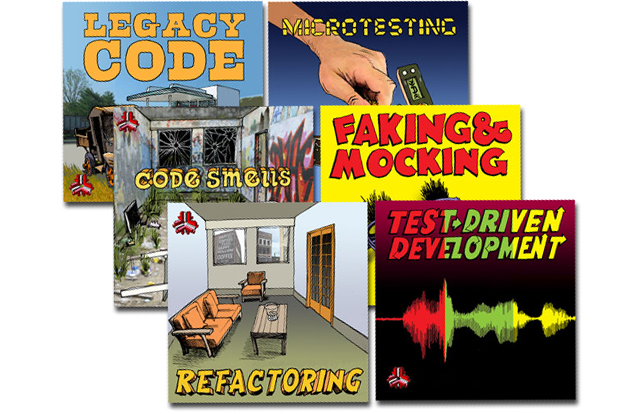As you may know, our online learning (Agile eLearning) uses a music metaphor in which our content is organized into albums, box sets, playlists, compilations, etc.
Every album we have is composed of tracks.
We’ve recently been measuring how long it takes people to get through our tracks.
Some of our tracks take, on average, about 20 minutes while others (especially the ones with programming exercises) can take up to two hours.
When was the last time you listened to a 20 minute song?
Listening To The Metaphor
If popular songs are 2-5 minutes in length, what could we do to make our tracks more like songs?

I started to answer that question by looking at our popular Code Smells album.
In that album, we had a track called Common Code Smells, which contained 20 pages of information, quizzes and videos on the following smells:
- Dead Code
- Duplicated Code
- Comment
- Long Method
- Large Class
5 out of the 20 pages were on the Long Method smell.
I wondered what it would be like if Long Method was its own track?
But just calling the track “Long Method” sounded boring.
What would make it feel more like a song?
Then it hit me: “The Long and Winding Code” (based of the popular Beatles song, The Long and Winding Road).
I liked that so much that I went on a search for song titles for every smell in our Code Smells album.
Here is the result of that work:
| Smell | Song | Artist | Dead Code | This Is The End, Beautiful Friend | The Doors |
|---|---|---|
| Duplicated Code | Oops!...I Did It Again | Britney Spears |
| Comment | Communication Breakdown | Lez Zeppelin |
| Long Method | The Long and Winding Code | The Beatles |
| Large Class | Welcome to the Jungle | Guns N' Roses |
| Oddball Solution | When You're Strange | The Doors |
| Primitive Obsession | If I Had A Hammer | Lee Hays and Pete Seeger |
| Switch Statememt | The Choice Remains The Same | Led Zeppelin |
| Speculative Generality | You Can't Always Guess What They Want | Rolling Stones |
| Long Parameter List | Too Much Information | The Police |
| Conditional Complexity | Tangled Up In Blue | Bob Dylan |
| Combinatorial Explosion | Here, There and Everywhere | The Beatles |
| Alternative Classes With Different Interfaces | You Say Tomato, I Say Tomhato | Louis Armstrong |
| Inappropriate Intimacy | Don't Stand So Close To Me | The Police |
| Indecent Exposure | Hello, I Love You | The Doors |
| Refused Bequest | Don't Pass Me By | The Beatles |
| Black Sheep | Should I Stay Or Should I Go? | The Clash |
| Data Class | Still Haven't Found What I'm Looking For | U2 |
| Solution Sprawl | Across The Universe | The Beatles |
| Feature Envy | I Wanna Hold Your Hand | The Beatles |
| Temporary Field | Every Little Thing You Do Is Tragic | The Police |
| Side Effect | Dust In The Wind | Kansas |
Smaller Learning Batches
Since around 2007, my colleagues and I at Industrial Logic have been heavily influenced by Lean Software Development.
We’ve been reducing our own batch sizes of work to smaller and smaller amounts, which has led us (during the past year) to Continuous Deployment (i.e. every checkin to version control goes live to our site).
But what about our students?
We had not applied Lean thinking to the experience our students have, especially when they go through our online training.
Smaller tracks are small batches of learning.
So the song metaphor has helped us discover a way to make learning easier and more enjoyable for our students.
Testing, Testing, Testing
Since adopting the Lean Startup process, we are not content to just “hope” that students will like our shorter-length tracks (i.e. songs) better than the longer ones we used to have.
We have to measure it.
So in the following week we will be carefully measuring track completion rates and interviewing students to understand whether the song metaphor is helping or hurting their learning.




